#absentia 2011
Explore tagged Tumblr posts
Text

SUMMARY: Tricia, a woman whose husband went missing seven years ago, learns about a mysterious tunnel which could be the cause of several disappearances including her husband.
#absentia (2011)#supernatural horror#2010s#united states#north american movie#mentionable warning#child death#horror#movie#poll#more than 50% havent heard
19 notes
·
View notes
Text

forever unsure on how to draw these guys
#scribbles#the son oc#smith oc#changing the timeline up a bit. the son kills his dad in 2011. comes back to palomino in 2015 after hes ruled dead in absentia--#--in order to sell the old house and stays w micky+their aunt during that time. gets called back into town Again in 2017 in order to--#--sort out his fathers storage unit after the deposit he had paid on it runs out. also stays w mickys family during that ordeal#^ i like that spacing out a bit more both bc of the stuff i can do w micky And bc the sudden windfall of a whole house worth of money--#--means the son would go thru a period of eclectic and irresponsible spending bc hes got real poor money smarts. thus the--#--beat up hearse he drives around LOL
4 notes
·
View notes
Text
Have you ever watched a movie that was so good you never wanted to see it again because you did not think the second or third time could ever top the first?
That's the way it was with the movie Absentia. But after all this time, I'm about to watch it again just because there is little else on that either I haven't seen or that I truly want to see.
1 note
·
View note
Text

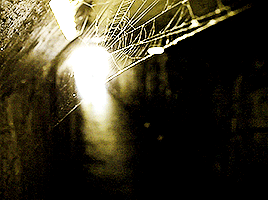






ABSENTIA (2011) dir. Mike Flanagan
#absentia#absentiaedit#userairi#tuserheidi#userriel#user_sammy#usertiny#userbess#userrobin#userrin#underbetelgeuse#usermorgan#fourteenthofaugust#usermoon#bug tw#horroredit#mikeflanaganuniverse#horrortvfilmsource#*gif#*tj
136 notes
·
View notes
Text
For October, 31 days of Lovecraft movies:
- The Call of Cthulhu (2005)
- The Lighthouse (2019)
- Dagon (2001)
- Color Out of Space (2019)
- In the Mouth of Madness (1994)
- The Dunwich Horror (1970)
- The Void (2016)
- Underwater (2020)
- The Whisperer in Darkness (2011)
- The Mist (2007)
- The Endless (2017)
- The Cabinet of Dr. Caligari (1920)
- Annihilation (2018)
- The Last Winter (2006)
- Prince of Darkness (1987)
- Resolution (2012)
- Spring (2014)
- The Borderlands (2013)
- Absentia (2011)
- A Dark Song (2016)
- Possession (1981)
- They Remain (2018)
- The Autopsy of Jane Doe (2016)
- Possum (2018)
- The Ritual (2017)
- The House by the Cemetery (1981)
- The Resurrected (1991)
- Beyond the Black Rainbow (2010)
- The Innkeepers (2011)
- The Blackcoat's Daughter (2015)
- The Endless (2017)
28 notes
·
View notes
Text
The fall of Bashar al-Assad has created a historic opportunity to gather direct evidence of the crimes committed by the Syrian regime, which investigators have been unable to do until now. After 50 years of witnessing massive human rights violations, many Syrians are now demanding truth and justice.
Torture, executions, chemical attacks on civilians, ethnic cleansing, bombing of residential areas, using famine as a weapon of war... The litany of war crimes and crimes against humanity committed by Bashar al-Assad's regime appers to be endless. After decades of impunity, international investigators are now hoping to obtain direct access to evidence documenting 50 years of abuses.
The deposed dictator had maintained his father’s repressive and fear-inducing regime, where any form of dissent could lead to imprisonment. This unrelenting repression reached its peak in the aftermath of the Arab Spring. Since 2011, the UN estimates that more than 300,000 civilians have lost their lives and at least 100,000 Syrians have been forcibly disappeared.
“The fall of Bashar Al-Assad represents an absolutely incredible opportunity,” said Aymeric Elluin, Amnesty International’s arms and conflict advocacy officer. “We need to have access to primary sources to build solid and irreproachable cases, in particular to the places where abuses were committed. However, the regime has blocked our access to Syrian territory since March 2011. Our work has therefore been carried out from a distance, using satellite images and the testimonies of prison survivors who have taken refuge abroad.”
Despite being denied access by Bashar al-Assad's Syria, “we have been able to acquire a great deal of information thanks to Syrian civil society, which very early on collected testimonies and official documents”, said Chloé Pasmantier, a lawyer with the International Federation for Human Rights.
A mountain of evidence
The Syrian regime's chillingly efficient bureaucracy, which kept meticulous records of its crimes, made this initial data gathering easier. The 'César' dossier, which was discovered in 2014 and named after the military photographer who documented the grisly evidence, brought to light the industrial-scale torture inflicted on imprisoned Syrian opponents. His defection made it possible to compile a report containing 55,000 photos of 11,000 detainees who were tortured and died between 2011 and 2013 in several detention centres.
Faced with this mountain of evidence, the UN set up the International, Impartial and Independent Mechanism (IIIM) in December 2016. Based in Geneva, this “facilitator of justice” is responsible for centralising evidence and providing input for legal proceedings opened at the national level against Syrian officials in several European countries.
For instance, three former high-ranking members of the regime were tried in absentia in France at the end of May and sentenced to life imprisonment. According to the French Anti-Terrorism Prosecutor’s Office, which is also responsible for ruling on war crimes, crimes against humanity and genocide, 24 proceedings involving the Syrian regime and its auxiliaries are under way, reported French daily Le Monde.
In Germany, Anwar Raslan, a former Syrian intelligence official, was sentenced to life imprisonment for crimes against humanity in January 2022. Raslan was found guilty of the death and torture of prisoners in a secret government detention centre in the capital Damascus between 2011 and 2012.
The French courts also issued an arrest warrant in November 2023 for Assad himself for the August 2013 chemical attack on Ghouta, near Damascus, which killed more than 1,400 people.
Fear of destruction
Despite the abundance of evidence already collected, the fall of the Syrian regime has opened up a new field of exploration for international investigators by giving them direct access to official buildings and Syrian prisons.
Syria is “the scene of the crime, so if we can have access to the scene of the crime, it changes the game for us”, Robert Petit, the Canadian prosecutor who has headed the IIIM since the beginning of 2024, told AFP.
“Especially as the regime collapsed very quickly, which no doubt prevented the perpetrators from destroying the evidence. This offers very positive prospects when it comes to searching for the truth,” said Johann Soufi, a lawyer specialised in international law.
The priority now is to preserve this evidence during the transition period. The UN Commission of Inquiry on Syria on Sunday called on rebel groups to ��take great care not to disturb the evidence of violations and crimes” by seizing prisons.
“We must ensure that this evidence is not destroyed, not only by the rebels who have taken power but also by any other party or state. Israel carried out a large number of strikes on several military sites, including the Syrian Scientific Studies and Research Centre, where the regime was developing chemical weapons. Crucial documents regarding the production and use of these weapons were probably destroyed in this bombing,” said Pasmantier.
According to Pasmantier however, the Syrians have all the knowledge and experience needed to collect and preserve evidence for use in legal proceedings. Abu Mohammad al-Jolani, leader of the Hayat Tahrir al-Sham (HTS) group and the new strongman of Damascus, reaffirmed on Wednesday that the torturers would not be granted amnesty.
Ending the ‘cycle of violence’
It remains to be seen what will happen to those responsible for the crimes committed by the former Syrian regime. “One of the fundamental principles of international justice is that it is always up to national jurisdictions and the people to render justice to the victims,” said Soufi. “Then, a country can request additional expertise and set up, for example, a mixed tribunal like in Cambodia or Lebanon. But this depends on the agreement reached between the United Nations and the requesting state.”
On the other hand, the International Criminal Court (ICC) does not currently have jurisdiction in Syria, as it has not ratified the Rome Statute, the international treaty that established this court.
“Attempts by the United Nations Security Council to bring the case before the ICC failed because of Russian opposition. But now there is nothing to prevent Syria from ratifying the Rome Statute and submitting a request for retroactivity so that the ICC can take jurisdiction over the crimes committed by Bashar al-Assad's regime,” said Pasmantier.
However, it is too early to know whether the future Syrian judiciary or the new masters of Damascus will be willing to work with international actors. “It must be stressed that the rebel groups have also committed human rights violations. From now on, the armed groups that have taken power must respect international law and help to ensure that justice can be done in Syria,” said Elluin.
The UN IIIM investigators have said that they are ready to intervene in Syria, even though for the moment no contact has been established with the new authorities.
That being said, the interim authorities have asked the UN refugee agency (UNHCR) to remain in the country, which sends a “constructive” signal, the organisation said Friday.
The authorities have said that “they want us to stay in Syria, that they appreciate the work that we have been doing now for many years, that they need us to continue doing that work", Gonzalo Vargas Llosa, UNHCR's representative in Syria, told reporters in Geneva by video link from Damascus. Llosa added that the interim authorities had also said “they will provide us with the necessary security to carry out those activities”.
According to the experts interviewed by FRANCE 24, the quest for truth and justice must be a central pillar of Syria's future.
“Impunity fuels the feeling of injustice and reinforces the desire for revenge between communities, perpetuating a cycle of violence. The only way to put an end to this is to establish justice that respects human rights. It can serve as a deterrent, demonstrating that criminal acts can have legal repercussions, even decades later,” said Soufi.
“Documenting the facts also means seeking out a historical truth that might otherwise be disputed,” continued Soufi. “Lastly, fulfilling the needs of victims requires upholding their fundamental rights to truth, justice, and redress.”
6 notes
·
View notes
Text
I've figured out the You’re Almost Home Timeline so for the gang who care about the passage of time it's under the cut.
Firstly, I have chosen to totally ignore the gravestone dates because of Reasons, including "okay look I started writing this when it wasn't on streaming and this is mostly so it makes sense to me" and "time is an illusion I just need to know this so I can say what year it'll be on NYE". Felix has a January birthday in my little canon and nobody can stop me.
So let's go!
2007
Felix is in Expensive Rehab Facility until Christmas. Sir James and Lady Elspeth have pulled a lot of strings to make sure that Felix's accident won't impact him in any way, shape or form. This mostly means getting him an expensive tutor and essentially permission to submit all of his work online. No need for tutorials because he's had a hard time and is a very special boy. Felix takes this chance to essentially do as much work while he's stuck in the facility as he can because there's fuck all else to do, and he's being made to quit smoking so he's mad about that. Farleigh's back as if he never left, and Venetia is being an absolute rock.
Oliver returns to Oxford, makes contact with the Student Counselling Services, and throws himself into studying so hard it hurts. He needs to distract himself. They allow him to switch tutors and move to a different dorm where he turns into a studying hermit. If he sees any of the Alpha Hotties, he hides. He becomes invisible again, even more than before. His new tutor helps him switch to an accelerated degree program.
2008
Felix turns 21 and does the Spring and Summer terms. His parents decide to go on a tour of Europe to celebrate Felix getting back on the horse. They also know he's going to graduate, because the Special Little Boy measures are in place for him so all he has to really do is log on to Moodle and submit one of his pre-written essays every so often. He's burned a few bridges because he's being very twattish. Felix decides to sack off Christmas term and heads to Bali in late July/early August. Sir James has made sure he has internet access, so what's the point of even being in Oxford? He meets Lucia, who is 18 and on her Gap Year. Because it's the end of the summer, there aren't many options, so Felix sticks with her. Harry is part of the group from maybe like... week three? Luckily, Lucia is on a cleanse, so although they're partying, she isn't drinking or indulging in anything else. In November, Lu gets food poisoning- or so they think, until the doctor Felix hauls her to gives them the news. Felix contacts his parents in a hurry, and they are flown back to the UK and subjected to a major parental conference. Felix proposes to Lu at a Catton Christmas party.
Oliver graduates early. He doesn't go home for the holidays, saying he needs to keep studying. He decides on teaching because it won't be sustainable to be a student forever. His tutor is a major help; he's from Newcastle, although you wouldn't know it because his accent has long since faded and has taken Oliver under his wing. He remains Oliver's main advisor throughout his studies and is probably the reason he gets the job- he's keeping an eye on him so he knows there'll be a Northern Lad Professor once he eventually retires. They're not exactly friends, but there's a lot of mutual respect there.
2009
Felix turns 22 and marries Lu shortly after. He briefly returns to Oxford, but mostly to make sure he graduates. Harry is born in on the 10th of April and he gets his degree in absentia. Lu gets pregnant with Ru maybe a little too soon afterwards, and Rufus is born prematurely on the 27th of November. Oopsie.
2010
Oliver gets his Masters degree in english literature.
2011
Sir James dies of a heart attack in May.
2013
Ellie is born on the 1st of August. Felix gets a vasectomy.
2014
Oliver gets his PhD. His thesis was titled "Narrative Accessibility and Diversity within Academia".
2015
Lady Elspeth passes away in her sleep.
Then a bit of a time jump until
2020
Oliver is finally an associate professor after being in postdoc for 6 years.
Farleigh finally hits on a startup that works- a designer resale app that offers item verification for an add-on fee. It's wildly successful, mostly because he's been hobnobbing in America hardcore and is getting a ton of celebrity endorsements.
2025
Venetia is diagnosed with lung cancer.
2026
Venetia passes away. Felix is bereft.
Harry gets her A level results and Oxford place, despite being 17- Lucia, having not got a degree herself, is adamant that her children be highly educated as fast as possible... and Harry will turn 18 in her first year anyway. Harry doesn't mind this, as she has a fake ID and cannot wait to be away from boring boarding schools.
Oliver Quick receives an email notifying him that, amongst others, he will be tutoring Harriet Catton.
And then Felix Catton walks into his office, and they proceed to go bonkers.
#you're almost home#leiflitter writes#if you see something that doesn't line up... i'm editing ok#you're almost home meta#YAH!posting
32 notes
·
View notes
Text
Even more movies I've watched lately

Absentia (2011): This movie is fine (and bleak), but it felt especially cheap, almost like something I should be watching on YouTube. This is because, according to Wikipedia, it was funded via Kickstarter. I used to have the same sheets as the Christian sister, Callie. One of John Bauer's charming troll illustrations turns up around 1:20:20. I suppose the lesson is "never give food to homeless people," or maybe "if you find a man with a deathly pallor collapsed in a tunnel who incoherently pleads with you about something, take his words extremely seriously"

Inland Empire (2006): David Lynch's final feature film. A scary man named Krimp looms in his front yard with a light bulb in his mouth. A surprisingly large portion of the dialogue is delivered in fake Southern accents. I know I'm supposed to say the film is a moving, visionary masterpiece from a genius, but despite enjoying the start, I don't think I've done enough Transcendental Meditation to "get" this one. I'm too far outside highbrow cinema culture, ultra-extreme auteur self-indulgence, and Lynch's religious understandings to care much for or about this film. (I have never seen people take this angle, but imo Lynch films tend to be highly religious, or rather, rooted in a particular religious cosmology involving intersections of dream universes. Imo anyone who isn't reading them with some of this religiosity in mind is overlooking an essential quality.) I suppose the lesson is "movies and reality are different"

Full River Red (2023): Despite the title, there is in fact a blue filter over a large portion of this very blue movie. My opinion changed over the course of the run time. At first, I thought it was bad. Then it became compelling. Then it wasn't merely compelling but nonstop great moments that retroactively improved and deepened the earlier scenes. Then it was shocking and viciously violent and still great. Then it became kind of silly. Finally, it's mediocre. Feels like it ends at three points but has to keep dragging on instead until they could contrive an over-the-top patriotic conclusion. It would have been a 9/10 if it only ended earlier, but instead it's probably more a 5/10 or worse. Like you don't need to actually show Qin Hui losing directly--the audience knows he lost in the long run because his name became synonymous with "traitor." Anyway, regardless of what Sun Jun says at the finale, the assassins are ABSOLUTELY there to kill Qin Hui, not to force him to recite a poem. That stab we see is a stab to fucking kill him. You saw it too, Sun! I suppose the lesson is if you are a patriot in the end, any amount of previous murder, torture, betrayal, or threatening Yaoqin with gang rape can be forgiven

Blue Gate Crossing (2002): Ironically, this one is NOT blue. A growing-up movie. Kerou's friend Lin Yuezhen is stalking her male classmate Shihao and stealing his possessions, including his shoes, as all normal girls with a crush would. Shihao swims a lot. He is a real charmer who gives his buddy money to masturbate in public, but as we get to know him, we see he also has plenty of energy to be unpleasant to Kerou as well. He becomes persuaded Kerou is the one who likes him and falls for her, which leads to some awkwardness. Kerou seems to hit on her adult PE teacher at one point. The big twist is that Kerou is actually in love with Yuezhen, but as with most things in the film, nothing much happens as a result of the lesbian twist. I suppose the lesson is if you follow and pester someone often enough long enough and never take no for an answer, you're really kind

Lupin III: Goemon's Blood Spray (2017): This one is disgustingly violent. I don't know why Goemon didn't just kill Hawk. Goemon showed NO mercy to the gangsters! None! What makes Hawk worthy of sparing? But I guess unpleasantly inconsistent narrative ethics are the bread and butter of this Woman Called Mine Fujiko-type Lupin stuff. At least there's no rape. I suppose the lesson is "If you turn off all your senses and stop feeling pain, you can keep fighting even with your arms chopped open." I apply this wisdom in my daily life very often. (If only I could just make pain stop)

The Thief and the Cobbler Recobbled Cut (2013): Richard Williams's uncompleted life's work. A sensory overload film. While the film displays technical excellence and many gorgeously stylized visuals, I cannot imagine putting so much effort into such a mediocre, vapid story! The story, of course, is the scaffolding that the animation, the real star, is hung up on. Being a showcase only for technical skill, the movie is not very entertaining, either. Watching a painstakingly animated slapstick sequence of the Thief, I'm not gasping at the impressive, mind-boggling visuals but wondering when this interminable nonsense will end so we can return to the cardboard-cutout characters advancing the paper-thin plot. Even the climax is not a showdown against the evil Zigzag or the One-Eyes (the villains) but a ludicrously protracted Thief-bouncing-around scene. Tack, the cobbler, isn't even given the agency to intentionally defeat Zigzag: it has to happen by mistake, in an instant, and then the movie keeps staggering on and on and on anyway to show off technically incredible work with no drama or substance. Just exhausting animation for the hell of it. Zigzag dies a rather gruesome death for being the only entertaining or fun character, especially when the ruthless conqueror who has actually killed tons of people apparently doesn't even die but instead gets sat on by a bunch of large women, which is more of a reward than comeuppance if you ask me. I suppose the lesson is that even if you are a master of your craft, perfectionism can get in the way of the qualities that most matter in art. Wait, that might legitimately be the lesson
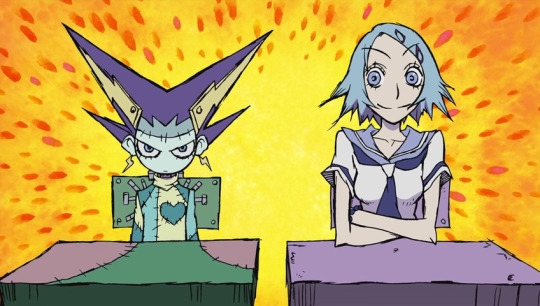
Hells (2008): The first half of this animated movie is irreverent madcap hammy fun. It's crude, it's violent, it's ridiculous. The opening shot is a cherub's anus while a voice screams that everyone goes to Hell when they die. The scenes are so explosive and rapid-fire that many of them seem to cut off before the scene is actually over (but hey, it's not boring). Though not as well-written or super-sexualized to the nth degree, Hells was reminding me of Kill La Kill. Then comes the big reveal and the villain powers up. Suddenly the setting totally changes for the rest of the movie, the established character arcs and relationships come to a dead halt and most of them reverse, the tone becomes extremely sincere, and the movie degenerates into a tedious, drawn-out chain of monologues about the power of faith and redemption. The ending also feels like they forgot what happened earlier: why are they rebuilding the abusive, terrible school? They didn't learn jack shit there. Did we forget the scene where the headmaster sexually tortures a student on a roulette wheel? Why the hell are we now acting like the school was a bastion of inspiration and hope that saved everyone? Madcap entertainment gives way to a back half where I'm begging the movie to end. No wonder Hells is forgotten. The lesson is that love and faith in people is more powerful than God
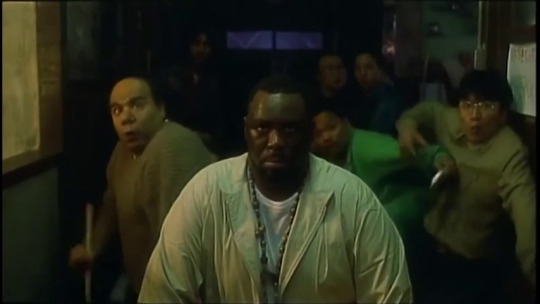
World Apartment Horror (1991): Directed by Katsuhiro Otomo, story by Satoshi Kon, screenplay cowritten by Keiko Nobumoto (creator of Wolf's Rain). Whoa! Is it awesome? No. I kept hoping, "Please don't be a story about how a bigot learns not to be a bigot because minorities are nice to him." But then it was. Even after the bigot attacks him with a chainsaw (!), the literally magic Black man remains steadfast and compassionate. But then it kept going long enough to be slightly more complicated. Another big problem is that the "horror" stuff is barely present until about an hour through (more than halfway), but at this point the script acts like it's been going on a while regardless. They should have showed us the protagonist's deterioration instead of just cutting from him being his usual dumbass self to him already being haunted/possessed. Really takes you out of it. The lesson is that revenge for genocide is wrong but maybe you need a supernatural being to defend yourself from racists even so. Apparently there's a manga version of this too
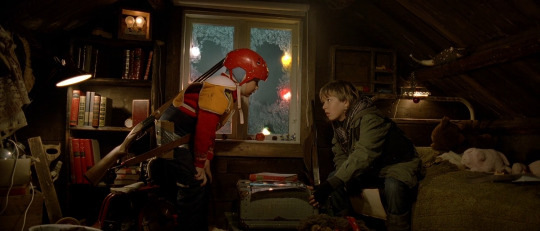
Rare Exports (2010): Surprisingly enough for a film involving murderous magical naked old men abducting children to ritually torture for Christmas, I'm disappointed it wasn't weirder. There is not a single woman anywhere in this film. The male characters are seemingly incapable of affection, tenderness, or kindness. Like you keep suspecting maybe someone will be nice a little bit, but nope. The world is brutal. I guess the meme that says Finns are "weird and sadistic" is true. I kept thinking how many of the children being swung around by the helicopter at the climax must be puking or passing out or screaming their lungs out. Speaking of the climax, why does Piiparinen know how to pilot a helicopter? Maybe I missed a setup for that. Or maybe the setup got cut. I suppose the lesson is that if you believe in evil Santa, you can get rich using slavery
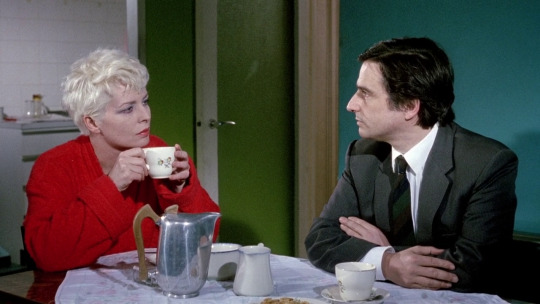
I Hired a Contract Killer (1990): This being an Aki Kaurismäki film, the actors can rarely tear themselves away from guzzling alcohol and smoking, and primarily speak in terse, austere, odd statements delivered awkwardly. Often feels like dialogue in a fairy tale. My favorite moment is when two ruthless hitmen earnestly, passionately attempt to persuade the protagonist (Henri) to love living. "But life is beautiful!" one hitman tells Henri. "It's a gift from our Lord," says the other. The lesson is cigarettes, booze, and sex make life worth living, but also, cigarettes will kill you. Though the cancer in the film is stomach cancer, actually, so maybe not
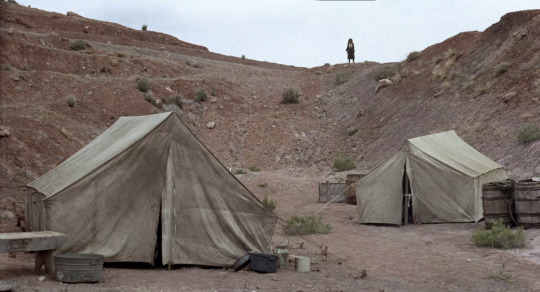
The Shooting (1966): All these years, those Sergio Leone spaghetti westerns have taken up so much cultural space. Meanwhile I never heard of this western, which is way better: more interesting drama, more interesting characters, less egregious day-for-night scenes. (Still slightly egregious.) Real good. Tense, even scary. The lesson is there is no amount of money that should be enough to go into the desert with a shady stranger
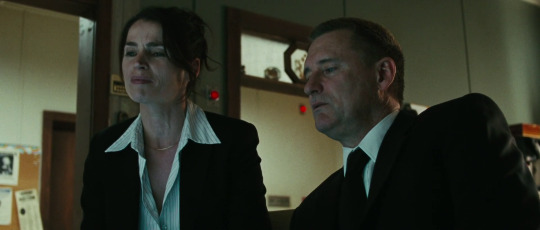
Surveillance (2008): With David Lynch's recent passing, I was thinking with some regret that there aren't more David Lynch films. Then I thought, well, I've never seen any film his daughter Jennifer Lynch was involved in. So I watched Surveillance, the second film she directed, the first being critically panned and, more importantly, sounding so disgusting I don't want to watch it. Surveillance was pretty disgusting too, it turns out. Of course it's unfair to expect Jennifer Lynch to be like David Lynch, and Surveillance, despite what you might guess from the gist (extreme and bizarre violence, FBI agents investigating a serial killer, etc.), is really not like a David Lynch film whatsoever. It matches the level of depravity in his films, except with zero mysticism or love, only cruelty and nihilism. You don't leave even Lost Highway feeling like it presents a desolate, hopeless universe. You do this one. The lesson is never go out in the middle of nowhere. Basically it's about the serial killers from The Reflecting Skin (1990) I mentioned in my previous movie post

Road House (1989): I watched Road House because on a certain podcast one person said this cult classic is a movie with no good guys, and then the other person said it's a quintessential story of good versus evil. It tells the tale of a bouncer martial artist named Dalton who can rip people's throats out with his bare hands. One day he gets hired to clean up the Double Deuce roadhouse, which is rife with violence and crime. Then he starts flirting with the doctor who is stapling the open knife wound on his side. I kept thinking that if there was a Streets of Rage movie, it should have exactly the same mood as this. Then I got thinking I could write an awesome Streets of Rage movie if I learned how to write screenplays. The ending is probably too happy (no way is Elizabeth going skinny dipping with this guy like everything is fine), but so is the ending to Taxi Driver, and that movie is so serious and realistic up to that point that it ruins the movie, but people still consider that a classic. The lesson is that snitching is bad
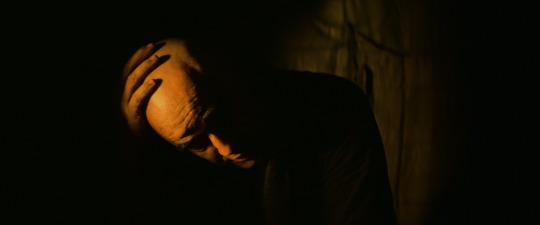
Apocalypse Now Final Cut (1979/2019): How little the story cares about Vietnamese people hit me a lot harder now than when I saw a different cut when I was a teenager. Somehow, murdering a Vietnamese family in cold blood for no reason toward the midpoint is treated as less traumatizing or severe than murdering a brutal warlord at the climax. I doubt it's exactly unrealistic, but man, throughout the story Vietnamese people are slaughtered, blown up, and denigrated with slur after slur, yet the script never takes the time to even once have an actual Vietnamese character partake in the story. Somehow there's time for a colonial French plantation owner (!) to share his perspective about "his" land, but no time for his all-Vietnamese servants or some ARVN guy or, God forbid, Vietnamese civilian to get a drop of character development. Hell, why is it that the main guy talking to Willard in the Kurtz sequence is a white American, while not a single person in Kurtz's overwhelmingly indigenous army ever speaks a word? I bet at least a few of these people know English if they're taking orders from Kurtz. Also, the finale apparently depicts an actual ritual butchery of an animal carried out by real indigenous people (specifically Ifugao, who are totally unrelated the highlanders they portray in the film). Pretty messed up to use a real practice by a real, contemporary indigenous minority group as a metaphor for primal ancient brutality and violence. Guess it's hard to scrub the racism from Heart of Darkness. I hope those extras were paid well at least. Anyway, despite all of that, this is one powerful movie! Just incredible! Cinema magic. The lesson is that imperialism is atavistic savagery
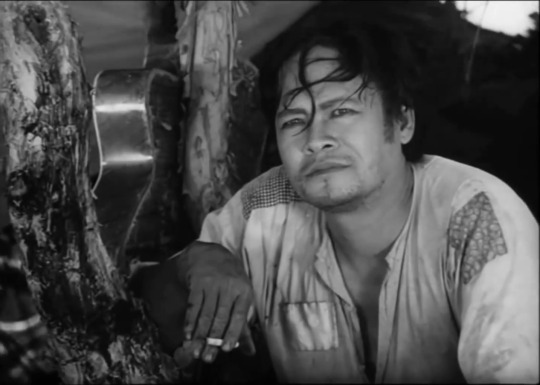
The Abandoned Field (1979): This one was a pain to find. Cánh đồng hoang, directed by Nguyễn Hồng Sến. The version on Internet Archive is a VHS recording and unwatchable. I never found a version with no compromises. Anyway, here's a Vietnamese war film that came out the same year as the (original cut of) Apocalypse Now. Certainly lower budget. It's a bit propaganda-y, and it has the issue of all the US soldiers being played by (I assume) Vietnamese actors who happen to have American-style haircuts. Biggest problem is the baby. Babies can't act, and this baby just keeps staring into the camera and never behaving the way the baby would behave in the moment. Just looks confused and scared the whole time. They should have told the same story but with a kid old enough to act properly, though it would mean they'd have to write the kid as a more developed character. Anyway, it's still thoughtful and intelligent. Get this: the Viet Cong characters have motivations and dialogue! Amazing! Viet Cong agents Ba Do and Sau Xoa raise a baby in a tiny shack in the Mekong Delta, the last Vietnamese in the area after the US forcibly relocated the other villagers. Ba Do is a nice, charming guy and loving father. Plays guitar too. Though in a moment of heightened tension, he does hit his wife once. He finds, catches, and kills a big snake with his bare hands then cuts out the gall bladder to sell. He really just wants to farm rice and lay around smoking in peace, but he won't give up his home to the US. Sau Xoa does a lot of domestic labor but is a soldier herself since communists are feminist. Their lives seem poor and hard though also idyllic, if only these deafening helicopters weren't swooping through like aliens to spray the paddies and woods with gunfire. Rather implausibly, the US Air Force official Mitscher becomes fixated on specifically capturing Ba Do because his resistance is too powerful a symbol for the Viet Cong. They really should have written that differently--have Ba Do be essential for Viet Cong communications or something instead. Well actually, he is I think, but for some reason Mitscher never even mentions that. There's even enough compassion in the film to do what Apocalypse Now wouldn't dare and make the enemy actually have some character, however simple: the US airman Jean is the primary antagonist, but he also has a wife and baby just like Ba Do. The film is a tragedy. That baby is over 40 now
6 notes
·
View notes
Text



Absentia 2011
2 notes
·
View notes
Text
Top Poll Records Last updated 22nd July 2024.

Most votes: The Blair Witch Project (1999) - 3,139 votes Least votes: Absentia (2011) - 54 votes

Most "Have seen" by number of votes: Rocky Horror Picture Show (1975) - 1,752 votes out of 2,493 votes Most "Have seen" by percentage: Coraline (2009) - 89.41% out of 1,228 votes Least "Have seen" by number of votes: Zibahkhana (2007) - 0 out of 444 votes Least "Have seen" by percentage: Zibahkhana (2007) - 0% out of 444 votes

Most "Haven't seen" by number of votes: The Blair Witch Project (1999) - 1,436 out of 1,638 votes Most "Haven't seen" by percentage: Winnie the Pooh: Blood and Honey (2023) - 79.1% out of 611 votes Least "Haven't seen" by number of votes: Absentia (2011) - 14 out of 54 votes Least "Haven't seen" by percentage: Playdurizm (2020) - 3.97% out of 755 votes

Most "Haven't heard of" by number of votes: Blue Monkey (1987) - 1,611 out of 1,361 votes Most "Haven't heard of" by percentage: Playdurizm (2020) - 95.5% out of 755 votes Least "Haven't heard of" by number of votes: Coraline (2009) - 1 out of 1,228 votes Least "Haven't heard of" by percentage: Coraline (2009) - 0.08% out of 1,228 votes

Vote results 1-100 | 101-200 / 201-300 / 301-400 / 401-500 501-600 / 601-700 / 701-800 / 801-900 / 901-1000 1001-1100 / 1101-1200 / 1201-1300 / 1301-1400 / 1401-1500 1501-1600 / 1601-1700 / 1701-1800 / 1801-1900

40 notes
·
View notes
Text
October Watchlist 2024
🎃 Happy Halloween! 🎃
Fear Street: 1994 (2021) Fear Street: 1978 (2021) Fear Street: 1666 (2021) Oddity (2024) The Houses October Built (2011) Grave Encounters (2011) Gonjiam: Haunted Asylum (2018) The Hitcher (1986) The Stepfather (1987) The Happiness of the Katakuris (2001) The Quiet Family (1998) Men (2022) The Dead Don't Die (2019) One Missed Call (2003) Vampire's Kiss (1988) Rabid (1977) The Unknown (1927) Cuckoo (2024) The Brood (1979) Stereo (Tile 3B of a CAEE Educational Mosaic) (1969) Hour of the Wolf (1968) V/H/S/Beyond (2024) MaXXXine (2024) Frankenstein (1931) Bride of Frankenstein (1935) Phantom of the Paradise (1974) Creep (2014) Sisters (1972) Lisa Frankenstein (2024) The Loved Ones (2009) An American Werewolf in London (1981) Absentia (2011) Fright Night (1985) Baby Blood (1990)
5 notes
·
View notes
Note
i've recently been getting into lovecraft & cosmic horror as a genre & was wondering if you had film recs? i can't seem to find many cosmic horror movies & am wondering if that's bc it's hard to film?
i would argue that there aren't that many good cosmic horror films for a couple reasons.
mainly, while it has been written for a long time, it has not been a genre that the greater public has been super aware of until the past few decades. but, also, it is hard to film a lot of elements of cosmic horror--namely, the incomprehensibility that often accompanies it.
my top cosmic horror films list would be:
X: The Man with the X-Ray Eyes (1963)
From Beyond (1986)
The Call of Cthulhu (2005)
Beyond the Black Rainbow (2010)
Absentia (2011)
Coherence (2013)
Southbound (2015)
The Endless (2017)
Annihilation (2018)
Color Out of Space (2019)
The Block Island Sound (2020)
Glorious (2022)
there's also A Cure for Wellness (2016), which isn't that great of a film, but has some really awesome visuals and a few neat cosmic horror ideas.
9 notes
·
View notes
Text
Oct. in Film
Forgot to post my halloween doings. Only made it to 85 horror films and a few ere not actually horror films once I got into them.
8 is old so you probably already know how great it is. 23 was great fun. 37 and 40 were both good. I was told 50 was bad, but I actually highly recommend it. 58 was fun and a little different than I expected. 61 was good as was 63. 62 was kind of silly but I enjoyed it. And 65 was maybe the best one (plus it makes fetch happen at the end). 71 may become a new favorite series if they make follow ups. 79 was good and I had forgotten about the first movie in the series. I may watch both of those together next year.
Absentia (2011)
Alone in the Dark (1982)
The Amusement Park (1975)
The Angry Black Girl and Her Monster (2023)
Anything for Jackson (2020)
Appendage (2023)
Baby Ruby (2022)
Barbarian (2022)
The Beyond (1981)
The Blackening (2022)
Bones and All (2022)
The Boogeyman (2023)
Cam (2018)
Children of the Corn (2020)
The Cleansing Hour (2019)
Cobweb (2023)
Dashcam (2021)
The Deadly Spawn (1983)
Deliver Us (2023)
The Devil on Trial (2023)
Dolores Claiborne (1995)
Elevator Game (2023)
Evil Dead Rise (2023)
The Exorcist: Believer (2023)
Five Nights at Freddy's (2023)
Gerald's Game (2017)
Gorgo (1961)
Grave Encounters 2 (2012)
Gretel & Hansel (2020)
Haunt (2019)
Haunted Mansion (2023)
The Haunting of Julia (1977)
Haxan (1922)
The Hidden (1987)
His House (2020)
Hush (2016)
Influencer (2022)
The Invitation (2022)
It Lives Inside (2023)
Knock at the Cabin (2023)
Little Bone Lodge (2023)
Luckiest Girl Alive (2022)
Malum (2023)
Maniac Cop (1988)
Maniac Cop 2 (1990)
Maniac Cop 3: Badge of Silence (1992)
Meg 2: The Trench (2023)
Missing (2023)
Night of the Hunted (2023)
No One Will Save You (2023)
Nocebo (2022)
The Nun II (2023)
Older Gods (2023)
The Passenger (2023)
Pet Sematary: Bloodlines (2023)
The Puppetman (2023)
The Relic (1997)
Saw X (2023)
Scare Package (2019)
Scary Stories (2018)
Seance (2021)
Sick (2022)
Slaxx (2020)
The Sleepless Unrest: The Real Conjuring Home (2021)
Slotherhouse (2023)
Smile (2022)
Spree (2020)
The Stylist (2020)
Superhost (2021)
Tales of the Uncanny (2020)
Talk to Me (2022)
There's Something Wrong with the Children (2023)
Totally Killer (2023)
Unseen (2023)
Unwelcome (2022)
VHS 85 (2023)
Vicious Fun (2020)
Werewolf of London (1935)
The Wrath of Becky (2023)
We Have a Ghost (2023)
A Wounded Fawn (2022)
Wilkolak (2018)
Wrong Turn (2021)
Yogen (2004)
Zombie Girl: The Movie (2009)
2 notes
·
View notes
Text
Former brigadier general Mohammed Hamo, 65, who lives in Sweden, is accused of "aiding and abetting" war crimes and could get a life jail sentence.
The war between President Bashar al-Assad's regime and armed opposition groups, including Islamic State, erupted after the government repressed peaceful pro-democracy protests in 2011.
It has killed more than half a million people, displaced millions, and ravaged Syria's economy and infrastructure.
Wearing a dark blue shirt, jeans and sneakers, Hamo listened carefully and took notes as prosecutor Karolina Wieslander read out the charges.
Wieslander said Hamo had contributed -- through "advice and action" -- to the Syrian army's warfare, which "systematically included attacks carried out in violation of the principles of distinction, caution and proportionality."
"The warfare was thus indiscriminate," Wieslander told the court.
The charges concern the period of January 1 to July 20, 2012. The trial is expected to last until late May.
'Disproportionate'
The prosecutor said the Syrian army's "widespread air and ground attacks" caused damage "at a scale that was disproportionate in view of the concrete and immediate general military advantages that could be expected to be achieved."
In his role as brigadier general and head of an armament division, Hamo allegedly helped coordinate and supply arms to units.
Hamo's lawyer, Mari Kilman, told the court her client denied criminal responsibility.
"In any case he has not had the intent towards the main charge, that indiscriminate warfare would be carried out by others," Kilman said.
Kilman said the officer could not be held liable for the actions "as he had acted in a military context and had to follow orders."
Hamo also denied all individual charges and argued that Syrian law should be applied.
Several plaintiffs are to testify at the trial, including Syrians from cities that were attacked and a British photographer who was injured during one strike.
'Complete impunity'
"The attacks in and around Homs and Hama in 2012 resulted in widespread civilian harm and an immense destruction of civilian properties," Aida Samani, senior legal advisor at rights group Civil Rights Defenders, told AFP.
"The same conduct has been repeated systematically by the Syrian army in other cities across Syria with complete impunity."
This trial will be the first in Europe "to address these types of indiscriminate attacks by the Syrian army", according to Samani, who added that it "will be the first opportunity for victims of the attacks to have their voices heard in an independent court".
Hamo is the highest-ranking military official to go on trial in Europe, though other countries have tried to bring charges against more senior members.
In March, Swiss prosecutors charged Rifaat al-Assad, an uncle of President Bashar al-Assad, with war crimes and crimes against humanity.
However, it remains unlikely Rifaat al-Assad – who recently returned to Syria after 37 years in exile – will show up for the trial, for which a date has yet to be set.
Swiss law allows for trials in absentia under certain conditions.
In November, France issued an international arrest warrant for Bashar al-Assad, accusing him of complicity in crimes against humanity and war crimes over chemical attacks in 2013.
Three other international warrants were also issued for the arrests of Bashar al-Assad's brother Maher, the de-facto chief of the army's elite Fourth Division and two generals.
In January 2022, a German court sentenced former colonel Anwar Raslan to life jail for crimes against humanity. This was the first international trial over state-sponsored torture in Syria and was hailed by victims as a victory for justice.
3 notes
·
View notes
Text
Top 10 horror movies based on urban legends

Black Christmas (1974) :This film is based on the urban legend of a killer calling from inside the house, effectively using babysitter lore to create a terrifying experience.
The Mothman Prophecies (2002) :Unlike many urban legend films, this movie is based on real events, specifically the experiences of journalist John Keel. It explores the Mothman mythos and delves into grief, creating a hypnotic ambiance.
Candyman (1992) :This movie puts a spin on the Bloody Mary myth, creating a legendary villain. The film finds its mythology within the community of Cabrini Green, creating an in-movie mythology around the titular slasher, changing how people look in the bathroom mirror.
Urban Legend (1998): This slasher film brings recognizable urban legends to life as gruesome kills. Urban Legend puts a unique twist on the tired genre and brought some of the most recognizable urban legends to life as gruesome kills in the movie.
The Amityville Horror (1979) This horror film is based on the real-life paranormal claims made at 112 Ocean Avenue, Amityville, Long Island, where a man named Ronald DeFeo murdered his family.
Willow Creek (2013) This movie utilizes the legend of Bigfoot, invoking scares through sound and suggestion as a young couple is terrorized while exploring myths about Bigfoot's existence.
Slender Man (2018) This film is based on the 21st-century urban legend of the Slender Man, a tall, skinny, featureless man in a suit who stalks and kills people, especially kids.
I Know What You Did Last Summer (1997) :An urban legend provided inspiration for the killer in I Know What You Did Last Summer. The killer is a version of the Hookman myth. .
Scary Stories to Tell in the Dark (2019): This movie is rooted in American folktales, drawing heavily from folklore and urban legends. The legends featured in the movie include versions of The Hairy Toe and White Lady myths.
Absentia (2011) This film draws inspiration from the fairy tale Three Billy Goats Gruff, set in ominous tunnels that evoke mythical imagery.
0 notes
Text
Former French president Sarkozy faces court over alleged financing from Gaddafi regime
Former French President Nicolas Sarkozy will go on trial on Monday in the biggest political finance scandal in modern French history, in which he allegedly received millions of euros in illegal campaign funding from the regime of late Libyan leader Muammar Gaddafi.
The historic trial of the right-wing former French president and 12 others, including three former Sarkozy government ministers, for criminal conspiracy to obtain funds from a foreign dictator on a huge scale threatens to worsen already low voter confidence in the French political class.
After 10 years of investigation, the court will consider charges of what investigators called a “corruption pact” between Sarkozy and the Libyan regime, in which middlemen delivered suitcases of money to ministry buildings in Paris to illegally finance Sarkozy’s victorious 2007 presidential campaign.
If found guilty on corruption charges, Sarkozy could face up to 10 years in prison along with Claude Guéant, a former secretary-general of the Elysee Palace and interior minister, and Brice Hortefeux, a close Sarkozy ally who also served as interior minister.
The court will examine whether the Libyan regime requested diplomatic, legal and business services in exchange for funding Sarkozy’s presidential campaign. One of those alleged requests for favours concerned Abdullah al-Senussi, Gaddafi’s intelligence chief.
In 1999, a French court sentenced Senussi in absentia to life in prison for his involvement in the 1989 bombing of a Union de Transports Aériens (UTA) passenger plane over Niger that killed 170 people. The court will consider whether Tripoli has asked Sarkozy’s entourage to find a way to overturn France’s international arrest warrant for Senussi.
Laurie Heinich, a lawyer for 15 relatives of those killed in the UTA bombing, said her clients would “tell the court the truth” after learning that “the arrest of the man who killed their family members” could be “exchanged for money.” She said the alleged corruption pact would mean that “the money Nicolas Sarkozy used to get elected in 2007 was money tainted with the blood of these families.”
Sarkozy denies all allegations
Sarkozy, who was president from 2007 to 2012, denies all wrongdoing in the case.
Sarkozy’s representatives allegedly met with members of the Gaddafi regime in Libya in 2005, when the French politician was interior minister. Shortly after becoming French president in 2007, Sarkozy invited the Libyan leader on an extended state visit to Paris, who pitched his Bedouin tent in gardens near the Elysee Palace.
Sarkozy was the first Western leader to welcome Gaddafi on a full state visit since relations were frozen in the 1980s because of his pariah status as a sponsor of state terrorism. In 2011, however, it was Sarkozy who was among those Western leaders who favoured airstrikes against Gaddafi’s forces that helped rebels overthrow his regime. Gaddafi was captured by rebels in October 2011 and died an agonising death.
A documentary about the case, Personne N’y Comprend Rien (No One Understands), will be released in French cinemas on Wednesday, telling the story of the investigation.
Read more HERE

#world news#news#world politics#europe#european news#european union#eu politics#eu news#france#france news#nicolas sarkozy#former president#muammar gaddafi
0 notes